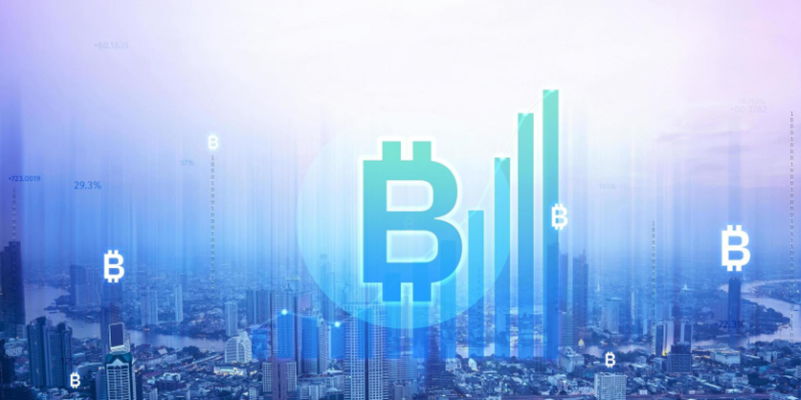JPMorgan Chase, one of the world’s leading financial institutions, has achieved yet another milestone in its exploration of blockchain technology. In its latest move, the company is providing institutional clients with enhanced control over payments through JPM Coin, marking a significant advancement in the realm of programmable payments.
Programmable Payments on the JPM Coin System
JPMorgan has introduced a new offering called programmable payments on the JPM Coin System. This feature allows clients to leverage blockchain-based accounts to initiate and manage payments more efficiently. By deploying smart contracts on the JPM Coin System, clients can program specific rules and parameters for carrying out various financial transactions.
The JPM Coin System operates on a permissioned payment rail and deposit account ledger. This blockchain-based infrastructure ensures secure and efficient transfers of dollars within the system. With the utilization of distributed ledger technology, JPMorgan enables faster and more transparent transactions, reducing reliance on traditional payment networks.
Institutional clients can seamlessly transfer dollars within the JPM Coin System, enjoying the benefits of blockchain technology. This frictionless transfer of funds streamlines payment processes and enhances liquidity management, revolutionizing the way organizations handle their financial operations.
Benefits and Applications of Programmable Payments
Through programmable payments, clients can establish rules for funding their bank accounts. For example, clients can automate the process of transferring funds from one account to another based on predefined conditions, such as reaching a specific balance threshold or scheduled intervals. This functionality provides enhanced control over liquidity management and optimizes the efficiency of financial operations.
Programmability enables clients to set parameters for executing payments based on various factors. For instance, margin calls, asset delivery requirements, or meeting specific contract terms can trigger automatic payment execution. By incorporating these parameters, JPMorgan empowers clients to ensure timely and accurate payment settlements, reducing the need for manual intervention and potential errors.
Blockchain technology provides the ideal infrastructure for the application of programmable payments, seamlessly integrating rules and bank accounts in a native manner. By leveraging the transparency and immutability of blockchain, JPMorgan facilitates efficient reconciliation and auditing processes, promoting trust and accountability across financial transactions.
JPMorgan’s Onyx Digital Assets Network
JPMorgan’s Onyx Digital Assets network, launched in 2020, offers a groundbreaking solution for tokenizing traditional assets. This platform allows the representation of assets such as US Treasuries and money-market products in digital form on the blockchain. Tokenizing these assets enhances liquidity, simplifies asset transfers, and opens up new avenues for investment and financial opportunities.
In a notable collaboration, JPMorgan tested its programmable payments with the German automation company Siemens in December 2021. This bold partnership aimed to redefine the role of corporate treasuries by embracing the transformative potential of blockchain technology. The successful implementation of programmable payments introduced novel financial models, expanding the possibilities for corporate treasuries globally.
Advantages of Blockchain-Based Bank Accounts
JPMorgan’s provision of 24/7 blockchain-based bank accounts, combined with programmability, offers a range of advantages and features previously only experienced in the world of cryptocurrencies. Institutions now have access to continuous, seamless banking services, eliminating delays associated with traditional banking hours and transaction processing times.
By incorporating programmability into blockchain-based bank accounts, JPMorgan enables clients to create dynamic and efficient financial systems. The ability to automate and streamline processes enhances operational efficiency, reduces costs, and minimizes the risk of human error, ultimately driving greater accuracy and reliability in financial operations.
Peter Rathgeb, Siemens’ Group Treasurer, expressed enthusiasm for JPMorgan’s new programmable payments offering, underscoring its potential to enable newer digital business models. Siemens, as a progressive leader in automation, recognizes the transformative potential of blockchain-based financial solutions in redefining traditional business practices.
JPMorgan’s Engagement in the Blockchain Space
JPMorgan has been actively exploring blockchain implementations. In November 2022, the company utilized the Polygon blockchain to trade tokenized cash deposits. This deployment further demonstrates JPMorgan’s commitment to leveraging blockchain technology to enhance liquidity management and facilitate secure financial transactions.
In a recent collaboration, JPMorgan’s Tokenized Collateral Network served as the platform for asset manager BlackRock to tokenize shares in one of its money market funds. The tokenized shares were then utilized as collateral for an over-the-counter derivatives trade with Barclays. This partnership showcases JPMorgan’s dedication to fostering innovative financial solutions in collaboration with industry leaders.
JPMorgan’s introduction of programmable payments on the JPM Coin System represents a significant milestone in the company’s blockchain journey. By empowering institutional clients to exercise greater control over payments through rules and parameters, JPMorgan revolutionizes the efficiency, accuracy, and transparency of financial transactions. With initiatives like the Onyx Digital Assets network and collaborations with companies like Siemens and BlackRock, JPMorgan continues to shape and redefine the future of finance through blockchain technology. The potential impact on the financial industry is immense, as programmable payments pave the way for greater automation, improved security, and enhanced financial opportunities for businesses worldwide.

